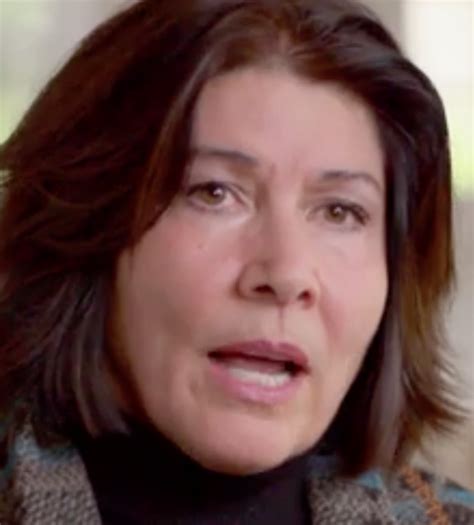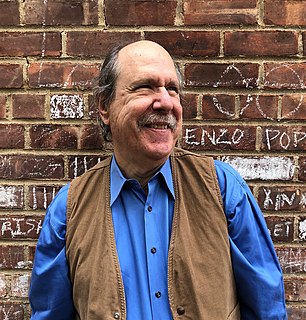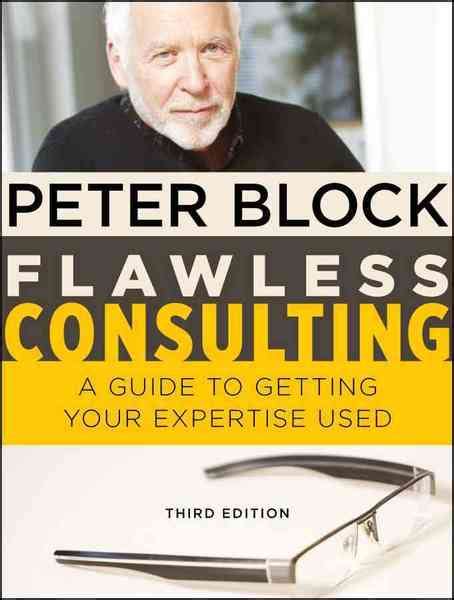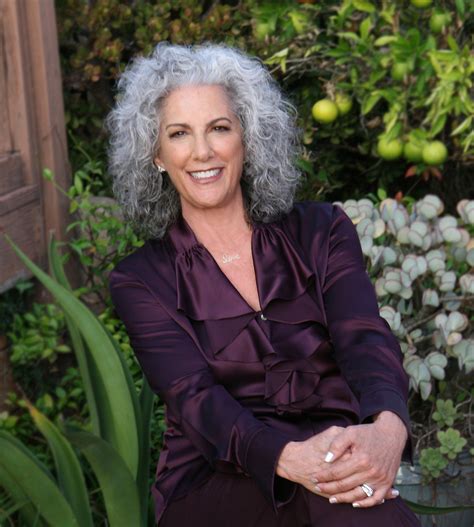Top 240 Scarcity Quotes & Sayings - Page 4
Explore popular Scarcity quotes.
Last updated on April 19, 2025.
People with a scarcity mentality think there is only so much in the world to go around. It's as if they see life as a pie. When another person gets a big piece, then they get less. Such people are always trying to get even, to pull others down to their level so they can get an equal or even bigger piece of the pie.
One of the most important features of our economic resources is their scarcity: land, labor, and capital goods factors are all scarce, and may all be put to various possible uses. The free market uses them 'productively' because the producers are guided, on the market, to produce what the consumers most need: automobiles, for example, rather than buggies.
There is only one important resource which has shown a trend of increasing scarcity rather than increasing abundance. That resource is the most important of all—human beings. . . . [An] increase in the price of peoples’ services is a clear indication that people are becoming more scarce even though there are more of us.
If orange trees grew all over the country, you couldn't sell oranges. Do you understand that? So, all our decision making is based upon scarcity or the availability of resources. If we have a shortage of any kind of resource, we put all the labs to work on making substitute materials. People always worry about 'What if we run out of a certain material?', but we have enough technology today to make thousands of different substitutes.
After doing this work or the past twelve years and watching scarcity ride roughshod over our families, organizations, and communities, I'd say the one thing we have in common is that we're sick of feeling afraid. we want to dare greatly. We're tired of the national conversation centering on "What should we fear" and "Who should we blame?" We all want to be brave.
What made traditional economies so radically different and so very fundamentally dangerous to Western economies were the traditional principles of prosperity of Creation versus scarcity of resources, of sharing and distribution versus accumulation and greed, of kinship usage rights versus individual exclusive ownership rights, and of sustainability versus growth.
People with a scarcity mentality tend to see everything in terms of win-lose. There is only so much; and if someone else has it, that means there will be less for me. The more principle-centered we become, the more we develop an abundance mentality, the more we are genuinely happy for the successes, well-being, achievements, recognition, and good fortune of other people. We believe their success adds to...rather than detracts from...our lives.
The world we live in pictures a pie with only so many pieces, and if other people have more you have less, and you have to compete with other people in order to try to get ahead. You have to sell yourself at every available opportunity. The shift, the enlightened shift, has to do with a movement from competition to collaboration, from sales to service, from ambition to inspiration, and to a belief in scarcity to a belief in abundance as an eternal spiritual quality.
GUNPOWDER, n. An agency employed by civilized nations for the settlement of disputes which might become troublesome if left unadjusted. By most writers the invention of gunpowder is ascribed to the Chinese, but not upon very convincing evidence. Milton says it was invented by the devil to dispel angels with, and this opinion seems to derive some support from the scarcity of angels.
There are a set of men who go about making purchases upon credit, and buying estates they have not wherewithal to pay for; and having done this, their next step is to fill the newspapers with paragraphs of the scarcity of money and the necessity of a paper emission, then to have a legal tender under the pretense of supporting its credit, and when out, to depreciate it as fast as they can, get a deal of it for a little price, and cheat their creditors; and this is the concise history of paper money schemes.
...America didn't have to fight scarcity and we all felt guilty before people who still had to struggle for bread and freedom in the old way ... We weren't starving, we weren't bugged by the police, locked up in madhouses for our ideas, arrested, deported, slave laborers sent to die in concentration camps. We were spared the holocausts and nights of terror. With our advantages we should be formulating the new basic questions for mankind. But instead we sleep. Just sleep and sleep, and eat and play and fuss and sleep again.
The founders of that ancient empire were robbers and women stealers, and made laws favoring monogamy in consequence of the scarcity of women among them, and hence this monogamic system which now prevails throughout all Christendom, and which has been so fruitful a source of prostitution and whoredom throughout all the Christian monogamic cities of the Old and New World, until rottenness and decay are at the root of their institutions both national and religious.
We of course have our problems, to say the least, in comportment towards ourselves and our environment, but admittance to the cosmos and the spatial infinity and temporal immortality it provides may well be just the remedy for these age-old problems. Access to the boundless resources of the universe may once and for all puncture the pressure of population and politics of scarcity which have generated war, oppression, and plagued our species from the start.
Leadership is scarce because few people are willing to go through the discomfort required to lead. This scarcity makes leadership valuable...It's uncomfortable to stand up in front of strangers. It's uncomfortable to propose an idea that might fail. It's uncomfortable to challenge the status quo. It's uncomfortable to resist the urge to settle...If you're not uncomfortable in your work as a leader, it's almost certain you're not reaching your potential as a leader.
This is a culture of female display. And the reason it's a culture of female display is that on the Upper East Side women far outnumber men, if you do the sex ratios. I can't say exactly what they are, but you could google it. People have said two to one. So, it's a female display culture because sex ratios are skewed toward men, and they sort of have their choice, even if they're married.... Also, women are economically dependent on men, and so there's that aspect of needing to perform your beauty and your scarcity.
There are scarcities in drinking water when you pollute the groundwater with nitrates. There is a scarcity in diversity when you create huge cornfields with the same strain of corn so that when one disease strikes - which happened in the United States in the 70s - all the cornfields in the country are wiped out. That was the first time the U.S. realized the value of diversity in agriculture and began to discuss genetic resources and their conservation.
If we only identify with the mortal world, then we identify with a level of scarcity and lack and brokenness, and that will be our experience. But if we shift our experience of self-identification - and this is what enlightenment is - from the body-self to the spiritual-self, then we place ourselves under an entirely different set of possibilities and probabilities.
A lot of artists give up because it's just too damn hard to go on making art in a culture that by and large does not support its artists. But the people who don't give up are the people who find a way to believe in abundance rather than scarcity.
They've taken into their hearts the idea that there is enough for all of us, that success will manifest itself in different ways for different sorts of artists, that keeping the faith is more important than cashing the check, that being genuinely happy for someone else who got something you hope to get makes you genuinely happier too.
If you create an artificial scarcity through public policy, artificial rent so to speak - setting up a new import quota or giving out a particular office that is very beneficial - people are going to invest money, time and resources in trying to secure that opportunity. If the value is created independently of the search for it, the search for it is wasted.
Everybody makes such a big deal today about team play because there's such a scarcity of it. Greed is a reason. You have to understand the influence of greed. A player has to be selfish in the pursuit of the development of his skills, but he cannot be selfish when it comes time to blend them in with what's good for his team.
...there is no resistance to the idea that what is foreign can be known. Can be understood. Can be held in the embrace of love that holds the Universe. Given this Earth on which we live and grow, given its beauty and generosity, its majesty and comfort, how can one doubt that one is loved? That in fact there is an abundance, not a scarcity of love? It is all anyone ever wants, really, I believe, and it is all around us as we starve.
Money is different from all other commodities: other things being equal, more shoes, or more discoveries of oil or copper benefit society, since they help alleviate natural scarcity. But once a commodity is established as a money on the market, no more money at all is needed. Since the only use of money is for exchange and reckoning, more dollars or pounds or marks in circulation cannot confer a social benefit: they will simply dilute the exchange value of every existing dollar or pound or mark.
The contemporary tendency in our society is to base our distribution on scarcity, which has vanished, and to compress our abundance into the overfed mouths of the middle and upper classes until they gag with superfluity. If democracy is to have breadth of meaning, it is necessary to adjust this inequity. It is not only moral, but it is also intelligent. We are wasting and degrading human life by clinging to archaic thinking.
The erroneous economic belief in scarcity leads directly to the mistaken theological belief that God does not want us to be rich. After all, in a world of scarce physical resources, a person could achieve personal wealth only by taking wealth from another - something that a truly benevolent, loving God would never allow.
There is an obvious evolutionary explanation for the scarcity of altruistic saints: Without a strong predilection for their own interests, our ancestors would have been unlikely to survive, reproduce, and give their own offspring a chance of doing the same. Now conditions have changed and for most of us, surviving and reproducing isn't such a struggle but we still carry the genes of our ancestors and they influence - not determine, but influence - our behavior.
Invitation is not only a step in bringing people together, it is also a fundamental way of being in a community. It manifests the willingness to live in a collaborative way. This means that a future can be created without having to force or sell it or barter for it. When we believe that barter or subtle coercion is necessary, we are operating out of a context of scarcity and self-interest, the core currencies of the economist.
This curious faith is predicated on the notion that we will soon develop unlimited new sources of energy: domestic oil fields, shale oil, gasified coal, nuclear power, solar energy, and so on. This is fantastical because the basic cause of the energy crisis is not scarcity: it is moral ignorance and weakness of character. We don't know how to use energy or what to use it for. And we cannot restrain ourselves. Our time is characterized as much by the abuse and waste of human energy as it is by the abuse and waste of fossil fuel energy.
There has always been a longing in the human heart for a more just, free, loving and creative society. But it was never before possible to fulfill these aspirations, because we had neither the evolutionary drivers and global crises to force us to change, nor did we have the scientific and technological powers that can free us from the limitations of scarcity, poverty, disease, and ignorance. This is the time of awakening for the social potential movement.
The mechanist is intimately convinced that a precise knowledge of the chemical constitution, structure, and properties of the various organelles of a cell will solve biological problems. This will come in a few centuries. For the time being, the biologist has to face such concepts as orienting forces or morphogenetic fields. Owing to the scarcity of chemical data and to the complexity of life, and despite the progresses of biochemistry, the biologist is still threatened with vertigo.
For too long we have tried to consume our
way to prosperity. Look at the cost: polluted
lands and oceans, climate change, growing
scarcity of resources from food to land to fresh
water, rampant inequality. We need to invent a
new model; a model that offers growth and social inclusion... that is more respectful of the
planet's finite resources. Nature has been kind
to human beings, but we have not been kind to
nature.
The universal Law of Attraction states that we draw to us those people, events, and circumstances that match our inner state of being. In other words, we attract experiences that are consistent with our beliefs. If we believe that there is plenty of love in the world and we are worthy of giving and receiving that love, we will attract a different quality of relationships than someone who believes in scarcity or feels unworthy of happiness.
Our actual lives, including our values, our social relations, our self-conceptions, and many of our concepts, are pervasively shaped both by the knowledge and by the fact that we will someday die - that we are subject to extreme temporal scarcity. There is no reason to think that, if we were immortal, the same things would continue to matter to us. We have little or no idea what, if anything, would matter to immortal beings, or even how such beings would think of themselves.
Charity is to unburden you from your guilt, so you say, `I am doing something: I going to open a hospital, going to open a college. I give money to this charity fund, to that trust....` You feel a little happier. The world has lived in poverty, the world has lived in scarcity, ninety-nine percent of people have lived a poor life, almost starving and dying, and only one percent of people have lived with richness, with money - they have always felt guilty. To help them, the religions developed the idea of charity. It is to rid them of their guilt.
Greater consumption due to increase in population and growth of income heightens scarcity and induces price run-ups. A higher price represents an opportunity that leads inventors and businesspeople to seek new ways to satisfy the shortages. Some fail, at cost to themselves. A few succeed, and the final result is that we end up better off than if the original shortage problems had never arisen. That is, we need our problems, though this does not imply that we should purposely create additional problems for ourselves.
If there were as great a scarcity of soil as of jewels or precious metals, there would not be a prince who would not spend a bushel of diamonds and rubies and a cartload of gold just to have enough earth to plant a jasmine in a little pot, or to sow an orange seed and watch it sprout, grow, and produce its handsome leaves, its fragrant flowers, and fine fruit.
The universe is continually at its work of restructuring itself at a higher, more complex, more elegant level. The novelty, the new, more complex order, doesn't emerge from the present in a steady stream, nor at all places at the same rate. It comes, as all things do, in rhythmic waves; there will always be times and places of scarcity and stagnation and retrogression. Still, the long-term direction is clear. The intention of the universe is evolution.
You could ask: Why are people attracted to narratives that justify the terrible things that we're doing to the planet? Why are people attracted to narratives of control and fear and hunting down the terrorists, and this uncaring attitude toward nature? These come from what I call the perceptions of separation and the experience of separation, the experience of alienation, the experience of scarcity and anxiety and competition, and a world in which everybody is out for themselves and nobody cares.
Mankind's journey into space, like every great voyage of discovery, will become part of our unending journey of liberation. In the limitless reaches of space, we will find liberation from tyranny, from scarcity, from ignorance and from war. We will find the means to protect this Earth and to nurture every human life, and to explore the universe. . . .This is our mission, this is our destiny.
It takes 1,000 tons of water to produce 1 ton of grain. As water becomes scarce and countries are forced to divert irrigation water to cities and industry, they will import more grain. As they do so, water scarcity will be transmitted across national borders via the grain trade. Aquifer depletion is a largely invisible threat, but that does not make it any less real.
In many ways, love seems to be totally divorced from economics. But then you realize - well, the stakes are high. This is something that matters to us. We're dealing with scarcity. I mean, if you're dating one person, at the very least, you don't have as much time to date another person. And you may well find that you can only date one person at a time.
The common meaning of gratitude is to be thankful for benefits received. While this is important, I feel that the energy of gratitude is one of the most powerful attracting forces in the universe. A heart filled with Thanksgiving, even when appearances tell us that we are mired in scarcity, conflict, and affliction, moves us to a higher frequency in consciousness and we soon witness reality shining through the illusion.
We are accustomed to repeating the cliché, and to believing, that 'our most precious resource is our children.' But we have plenty of children to go around, God knows, and as with Doritos, we can always make more. The true scarcity we face is practicing adults, of people who know how marginal, how fragile, how finite their lives and their stories and their ambitions really are but who find value in this knowledge, even a sense of strange comfort, because they know their condition is universal, is shared.
More and more businesses are seeing the potential of a more sustainable business model, driven both by the firm belief that business can be a force for good and by the realization that the cost of inaction often exceeds the cost of action - notably when it comes to the growing threat of climate change and water scarcity.
Medical disenfranchisement is fueled by a host of factors that include worsening shortage of primary care doctors in needy communities and a troubling scarcity of providers willing to treat the uninsured or publicly insured. Adding to the trend are fewer medical students choosing primary care over more lucrative and specialized fields.
Extreme weather like the droughts in Russia, China and Brazil and the flooding in Pakistan and Australia [in 2010] have contributed to a level of food price volatility we haven't seen since the oil crisisof 40 years ago. Unfortunately, this could be just a taste of things to come because in the next few decades the build-up of greenhouse gases already in the atmosphere could greatly increase the risk of droughts, flooding, pest infestation and water scarcity for agriculture systems already under tremendous stress.
No fossil is buried with its birth certificate. That, and the scarcity of fossils, means that it is effectively impossible to link fossils into chains of cause and effect in any valid way... To take a line of fossils and claim that they represent a lineage is not a scientific hypothesis that can be tested, but an assertion that carries the same validity as a bedtime story-amusing, perhaps even instructive, but not scientific.
When a difficult situation comes into your life, it is possible to tune in to your mind and say, ?Okay, choose.? Are you going to make yourself miserable or content? Are you going to visualize scarcity or abundance? Are you going to put yourself down for getting angry with your husband or are you simply going to notice what insecurity you were feeling at the time and discuss it with him? The choice is definitely yours. Pick the one that contributes most to your aliveness and growth.





















































